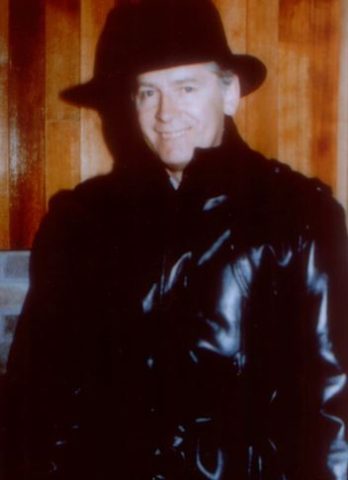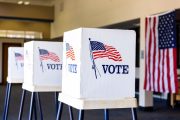
Three years ago, when Bulger, the reputed leader of the Winter Hill Gang (Boston’s Irish Mafia) was about to be arrested, he escaped, thanks to an inside tip about the sealed indictments and arrest warrants for him and his top lieutenant, Stephen "The Rifleman" Flemmi. Flemmi did not light out fast enough and is now a prisoner in the Plymouth County House of Correction, charged with racketeering, extortion, murder, and illegal gambling. During pretrial hearings in May 1997, Flemmi dropped a bombshell, claiming immunity from the criminal charges due to his status as a confidential informant for the FBI.
Explosive Findings
According to Flemmi, he and Bulger had been cooperating with the FBI for decades and had been told by their FBI handlers they could do anything short of "clipping someone" without fear of prosecution. It was the FBI, says Flemmi, who tipped him and Bulger about the imminent arrest plans by state authorities in 1995. Reportedly, the same FBI sources had earlier tipped the duo about bugging and wiretap efforts of the Boston police in 1980 and the Drug Enforcement Agency (DEA) in 1984. More serious are the revelations and charges that the FBI officials involved may have winked at — if not actually assisted beforehand, or covered up afterwards — more than one of the Winter Hill Gang’s "clippings."
These and other explosive findings have been coming out of the long pretrial hearings that have continued up to the present in the Boston courtroom of federal Judge Mark L. Wolf. On June 3, 1997, federal prosecutors disclosed, under an order by Judge Wolf, that Bulger was indeed an FBI informant for much of the time period relating to the indictment which charges Bulger and four other defendants — Flemmi, Francis "Cadillac Frank" Salemme, James Martorano, and Robert DeLuca — with coordinating the criminal activities of the Winter Hill Gang and the Patriarca Family of the New England branch of La Cosa Nostra — the Mafia. However, the prosecution, on the authority of Acting Deputy Attorney General Seth P. Waxman, "respectfully" declined to confirm or deny the informant status of Flemmi or anyone other than Bulger.
Judge Wolf responded that continued refusal by the government to disclose the ordered information could result in "adverse consequences to its case," including: 1) the exclusion at trial of evidence obtained through three contested wiretaps; or 2) dismissal of the indictment for extreme government misconduct. The judge also warned that Waxman himself — not one of his subordinates — would have to appear to respond to the defendants’ motion that he be held in contempt.
One of the most damaging witnesses to be put on the stand thus far is John Morris, former chief of the FBI’s organized crime unit in Boston. Under questioning, Morris admitted that he had exchanged Christmas gifts of books and liquor with Bulger and Flemmi. He also confessed to taking upwards of $6,000 from Bulger. And yes, Morris testified, he and other agents had shielded the mobster duo from prosecution for 20 years.
Murder Probe
One of the most sensational stories to come out of the hearings thus far centers on the 1981 murder of Roger Wheeler, a prominent businessman from Tulsa, Oklahoma. Wheeler was the chairman of Telex Corporation and the owner of World Jai Alai, which ran legalized gambling in Florida and Connecticut. Apparently, unbeknownst to Wheeler, his jai alai concern had been infiltrated by Bulger’s Winter Hill Gang. When Wheeler discovered that money was being skimmed from World Jai Alai, he was executed, mob style. He was found in his car in the parking lot of a Tulsa country club — shot between the eyes.
Within a few months of Wheeler’s murder, Brian Halloran, a hit man for the Winter Hill Gang, went to the FBI with stunning information: John B. Callahan, the mob-connected former president of World Jai Alai, together with Bulger and Flemmi, had offered him the contract on Wheeler. What’s more, said Halloran, the mob hit was likely assisted by Paul Rico, a former FBI agent in Boston who had gone to work at World Jai Alai after retiring from the Bureau. Halloran said he had turned down the murder contract on Wheeler himself and was willing to provide evidence to the FBI on Bulger’s and Flemmi’s roles. But the feds decided Halloran was "unreliable" and rejected his offer.
Someone then leaked word that Halloran had tried to snitch. A few weeks after having gone to the FBI, Halloran and a friend were gunned down while sitting in a car outside a Boston pub.
In July 1982, two months after Halloran’s murder, detectives from Tulsa and the Connecticut and Massachusetts state police descended on Boston in a search for John Callahan, in connection with the Wheeler murder. In meetings with Jeremiah O’Sullivan, the federal organized crime strike force prosecutor, they expressed their distrust of the FBI. Their suspicions were confirmed when O’Sullivan admitted that Halloran had tried to join the federal witness protection program and testify against Callahan, Bulger, and Flemmi.
But Callahan had disappeared. Perhaps he too had been tipped off by the FBI. Or, more likely, Bulger and Flemmi were tipped that Callahan had become a major liability. In August, a few weeks after the multi-state police task force arrived in Boston, Callahan’s bullet-riddled, decomposing body was found stuffed in the trunk of his Cadillac in a Miami airport parking garage. It was another gangland execution.
Obstruction of Justice
In a segment of its 60 Minutes program on May 10th of this year, CBS veteran Ed Bradley interviewed several police detectives from Oklahoma, Florida, and Connecticut who had worked on the Wheeler-World Jai Alai case. They were understandably angry. Sergeant Mike Huff, a detective with the Tulsa Police Department, was the first detective at the scene of the Wheeler murder. "We checked out thousands of other leads, but it all comes back to Boston and the Winter Hill Gang," Huff told Bradley.
"And Flemmi and Bulger?" Bradley asked. "Yes," answered Huff, "and as time progresses and more information comes out on Flemmi and Bulger, they’re more — more of a suspect now than they have been before." Particularly galling to Huff and other law enforcement officers working the case is that the FBI did not share Halloran’s information with them, but apparently did allow it to be leaked to the gangsters.
"Do you think that this was obstruction of justice by the FBI?" Bradley queried. "I don’t know what else to call it. Yes sir, I do," the detective replied. Bradley reminded him that he was making "a serious charge," to which Huff responded, "It’s a serious charge, and I don’t feel real great sitting here saying that 17 years later, but I don’t think there’s any other answer to that question."
Roger Wheeler’s son David is even more emphatic about the government’s culpability. "We’ve discovered that all along the FBI has been in bed with the prime suspects in my father’s murder," he told 60 Minutes. "They not only protected my father’s killers, they, to this day, are protecting my father’s killers. And they are, to this day, withholding information from the police. This is 18 years of covering up a crime. This is 18 years of being an accessory to murder."
Detective David Green, who investigated organized crime cases for the state of Florida, called the FBI’s handling of Bulger and Flemmi "a violation of all police ethics, professionalism, and not to mention some criminal statutes."
Miami homicide detective Ram Nyberg says his department was also exasperated by the FBI’s malfeasance in the case. "When you work an organized crime case, any case related to organized crime, you expect a certain amount of frustration, but you expect it from the bad guys," he told Bradley. "You don’t expect it from the people that you assume to be the good guys."
As a result of the revelations coming out of the pretrial hearings in Boston, dozens of mobsters now in prison are demanding new trials, claiming that evidence used against them was "tainted" by the improper FBI/Bulger/Flemmi relationship.
Widespread Corruption
Unfortunately, the FBI/Winter Hill Gang affair is not an isolated incident of localized abuse, corruption, and criminality by a few low-level members of the Bureau. Revelations over the past five years indicate a systemic problem that has drastically escalated during the tenures of President Clinton, Attorney General Janet Reno, and FBI Director Louis Freeh. Evidence of obstruction of justice, destruction of evidence, fabrication of evidence, perjury, intimidation of witnesses, intentional negligence of duty, abuse of confidential file information, and other serious criminal offenses by members of the FBI has mushroomed alarmingly. This has been especially apparent in the Oklahoma City bombing case. Yet the FBI has been given vast new resources and powers.
Last year an internal investigation of the FBI crime laboratories by the Justice Department’s Office of the Inspector General (IG) was finally conducted, after decorated FBI Agent Frederick Whitehurst made repeated charges about serious misconduct regarding falsification of evidence and false testimony by lab personnel. The IG report, although obviously softened by pressure from the Clinton Justice Department, nonetheless revealed a host of appalling abuses. However, that probe examined only three of the FBI lab’s 23 units and did not even concern itself with alleged criminal actions. As Senator Charles Grassley (R-IA) noted, "The IG’s charter was not to investigate for criminal actions. It was only a management study."
"The IG said he didn’t find any evidence of crimes, as alleged by Whitehurst — like perjury, or tampering with evidence by lab personnel," said Grassley. "But that’s because he didn’t do a criminal-type investigation. That’s a methodology that would detect patterns of questionable activity."
A senior congressional staffer who closely monitored the IG investigation told The New American at the time, "We had to push hard to get him [the Inspector General] to go as far as he went [in the report]. He did a pretty good job considering he is a Clinton appointee and was under considerable pressure from the Administration." Besides, the staffer noted, "this is about as strong as investigations get here in Washington." But there is compelling prima facie evidence of criminal activity at the lab, said this staff member, and "a criminal investigation is clearly in order and that’s what we will continue to push for."
The ongoing revelations concerning the FBI and the Winter Hill Gang show clearly and compellingly why such an investigation is absolutely imperative.
Photo: AP Images



